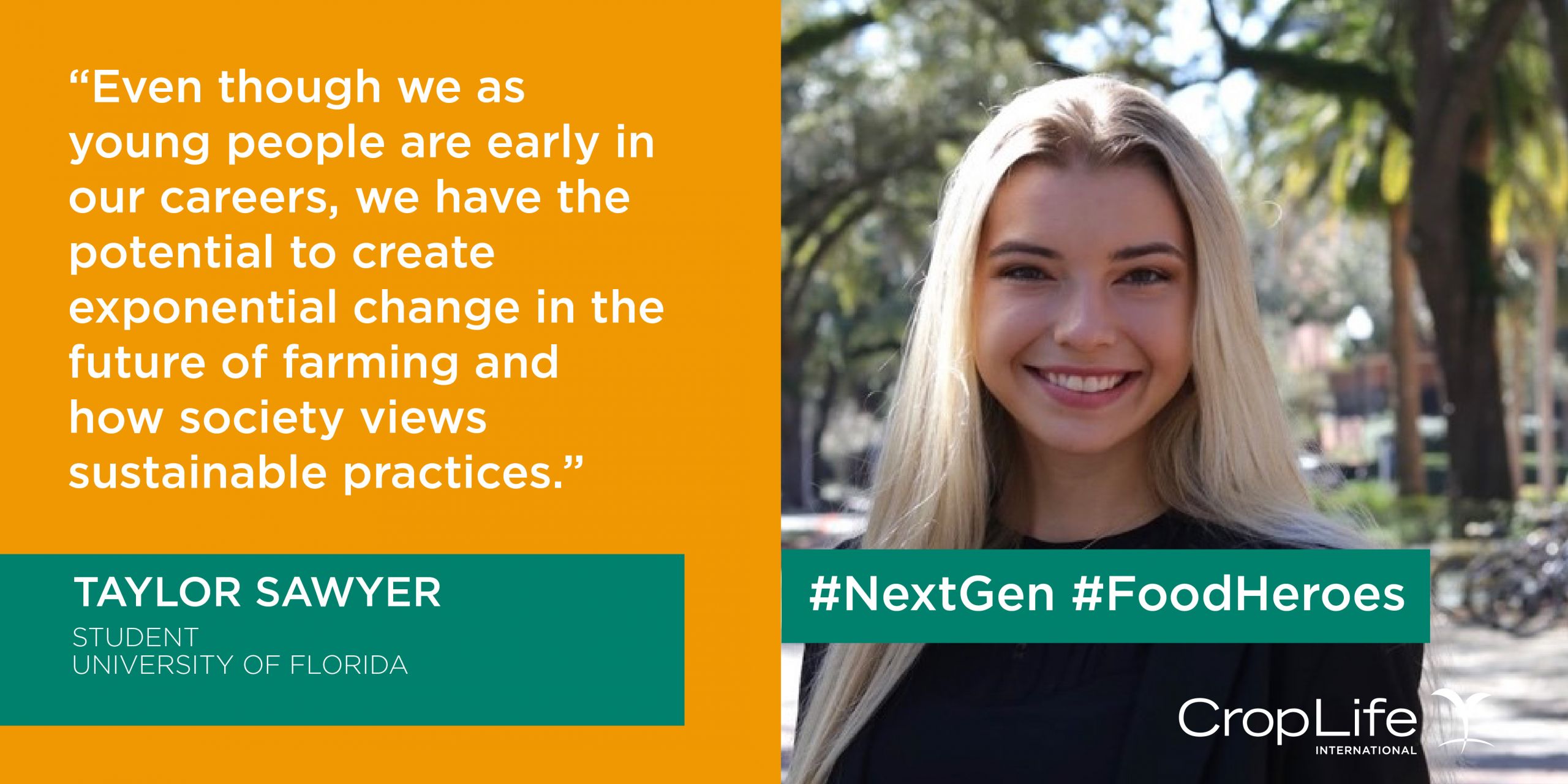
Taylor is an undergraduate student working at the intersection of math and biology in the areas of agricultural biotechnology, plant breeding, and bioinformatics and is a dedicated proponent of increasing female representation in agricultural and computer sciences, and the intersection of these two fields. In her view, having more female representation and diversity of thought in both the field and the lab is critical to provide diverse perspectives into research, and social conversations. In her career, she hopes to inspire and help other women to make a difference in science and society.
Tell us a bit about your work. What do you love about your studies and how did you get here?
Reflecting on my past experiences as a woman in STEM, the thing I love most is that I am given the opportunity to create an environment that encourages representation and inclusivity to solve challenging problems in food production through the breeding of crops. For the past two years, I have had the opportunity to work as a member of the University of Florida Blueberry Breeding and Genomics Laboratory. This experience has shown me the importance of women in agriculture and women in STEM. This opportunity has surrounded me with like-minded individuals, and it has been so inspirational to see the passion researchers carry within agriculture. During this research experience, I designed and conducted field experiments, and analyzed temporal delays and yield differences of parthenocarpic fruit, or the ability of blueberries to produce fruit in the absence of bee pollination. I was able to achieve this position because of all my mentors throughout my career who have continuously encouraged me to push the boundaries of science.
What advice would you share with young people who hope to contribute to sustainable food systems and farming?
As a young person myself, I strongly encourage others to keep innovating and stimulating diverse thought within the agricultural sector. Pushing the boundaries of knowledge is core to our existence and to me, innovation in sustainable systems encapsulates drive, determination, and resilience. Even though we as young people are early in our careers, we have the potential to create exponential change in the future of farming and how society views sustainable practices.
 How does agriculture need to change to be more sustainable?
How does agriculture need to change to be more sustainable?
Widespread education is vital in turning the agricultural sector from today’s state to a more sustainable state, where agriculture is the solution to climate change and health problems. Sustainable practices are not limited to just focusing on the environment. Being sustainable also means promoting innovative alternatives within the economy and within society. Reducing the use of our limited resources, improving the working conditions of farm laborers, and promoting the economic stability of farmers are all attainable through adequate education, leading to increased sustainability.
How can science and innovation help promote sustainability in food and agriculture?
Science can promote sustainability in agriculture by utilizing our natural resources to their full potential. The science of plant breeding, my specific field of interest, can promote sustainability by reducing global land usage and reducing carbon dioxide emissions. Through the selection of improved plant varieties, researchers can fully hasten the genetic gain of crops using modern technology, leading to increased food security through greater yield and higher efficiency.
In what ways are you leveraging innovation to promote strong food systems? Can you provide specific examples of innovation or technologies that support your work in tangible ways?

How do you see next-generation agricultural technologies contributing to climate change and soil health?
Agricultural technology plays a significant role in plant breeding to combat climate change. We can integrate agricultural technology in breeding for varieties that are nitrogen-efficient, leading to less nitrogen application on farms. Reducing the amount of nitrogen applied to the soil will, in turn, reduce water contamination and runoff, and the emission of potent greenhouse gases like nitrogen oxides. Using this type of technology to our advantage will aid in decreasing the risk of excess available nitrogen in our soil. These nitrogen-efficient varieties have the potential to increase yield with lower fertilizer use, while also reducing environmental pollution.
Taylor is just one of many inspirational young people working in agriculture. Visit our NextGen #FoodHeroes page to hear from other next-gen innovators working to improve plant science and nutrition.


